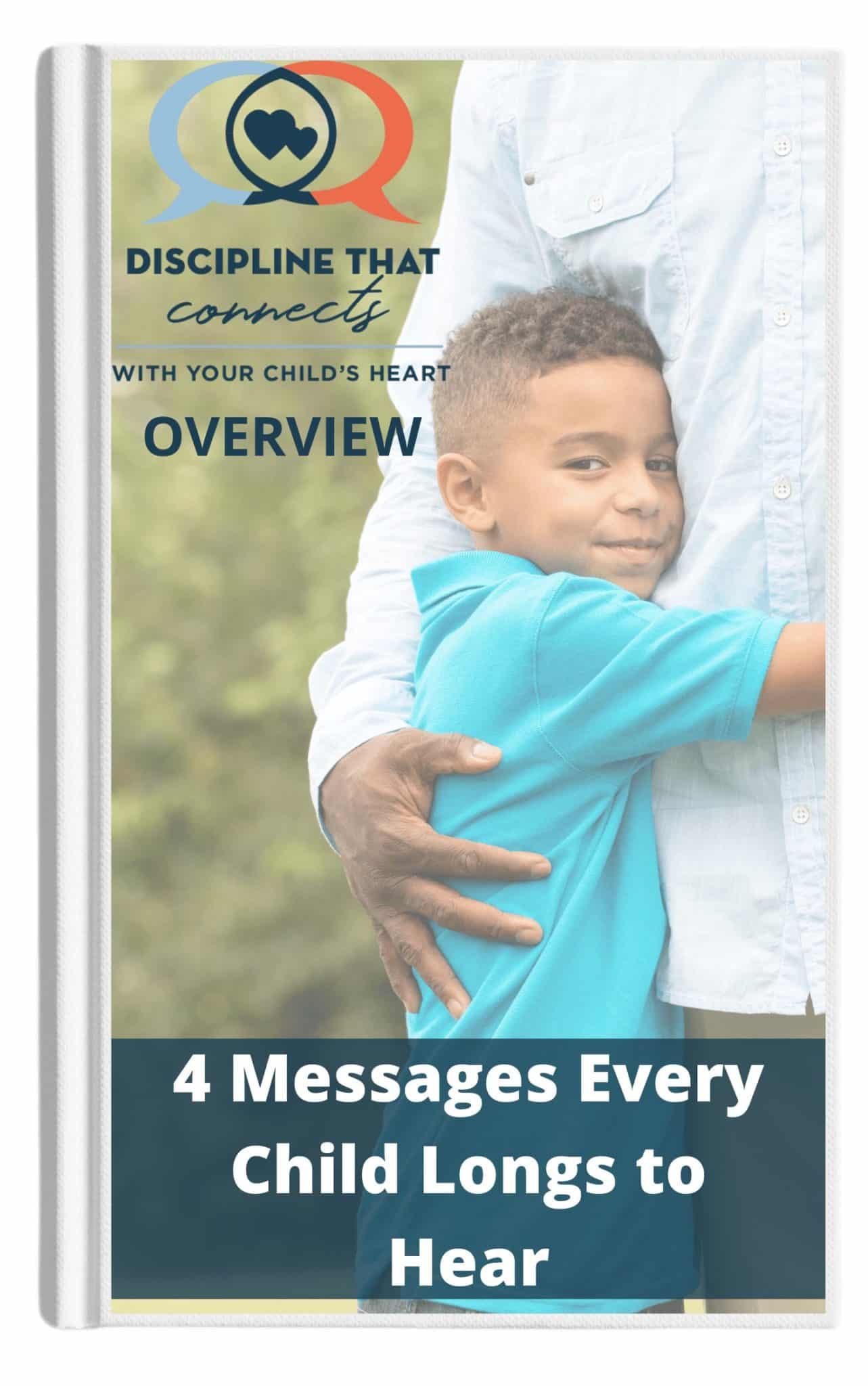
Parents and Sports: How to Let the Kids Have Fun Again
The real value in extracurriculars.

Article Summary: We all want to celebrate our children’s talents, but sometimes youth sports shift from being about our kids’ joy to becoming arenas for parental competition. The Connected Families Framework can help parents and sports coexist in a healthy way and find balance. Children need to know they’re loved regardless of performance and that the primary purpose should be fun, not scholarships or parental pride. By examining their own motives, parents can ensure sports remain a positive experience focused on character development rather than winning at all costs.
Let’s talk about youth sports and parent involvement. It’s hard, right? Often when you see a talent in your child, you want to make a big deal about it. This natural, proud-parent response can elicit dreams of Olympic gold, full-ride scholarships, and a million-dollar payday at the end of the rainbow. But pushing that direction can rob your child of the fun in their sport. (We’ve all seen those YouTube clips of the obnoxious parents in youth sports…)
Parents and sports…how do you find a balance?
Like many parents, I have a strong interest in athletics. I competed in four sports in high school and continued with track and field in college. My three kids all competed in a variety of sports, and to my great delight, track and field was one of them. There have been times, however, when I was a little too invested in the outcomes. In those times I have needed to check my own motives.
When youth sports are more about the parents than the kids
I was reminded of this when I came across an article entitled “Putting Kids Back Into Kids’ Sports,” which examines what the article calls the “adultification” of our children in youth sports:
“It’s the introduction of adult values into kids’ games,” says O’Sullivan (author of Changing the Game). “When I grew up, it was children competing against children. Now, more often than not, it’s adults competing against other adults through their children.”
There are many positives to be gained by our kids participating in sports (or theater, debate, Model UN, etc., etc.): teamwork, cooperation, work ethic, physical fitness, social opportunities, and sportsmanship, for example. But, are we as parents competing against each other through our children, as the author suggests?
How do parents get so mixed up in kids’ sports? It can be quite subtle, at least initially: Your child gets a goal, and you remember all the support and practice you’ve given your child, so you mentally give yourself a pat on the back.
But then your friend’s child scores several goals, and the parent casually mentions the extra practice regime they’ve started and how it’s working so well.
At that point, either you shrug your shoulders and don’t care, or suddenly you want your child to be as good as theirs, and you start to think of how you can give the same level of support. After all, future scholarships might ride on this, right? This is the moment that the competition ceases to be about the child or having fun.
My wife and I are both quite competitive. I have to remind myself that there are other reasons (see my list above) to be involved in sports beyond winning at all costs, receiving a college scholarship, and becoming a world-class athlete. For my kids, the main reason they have been involved in sports is to have fun! I’ve seen the look in their eyes or in their slumped shoulders when they feel the pressure to perform. At that point, I realize it has become more about me and less about them.
Whether it’s youth sports or another activity like music or drama, how might you respond using the Connected Families Framework?
4 messages kids need to hear from parents when playing sports
You are safe with me, no matter how you perform
What’s going on with you when your child scores or misses? Motives. Identity. Value. Sometimes it is hard to understand yourself and your true motivations. It is important to be aware of what is going on in yourself in relation to your kids’ involvement in sports.
Ask yourself these questions (and perhaps discuss with a spouse or trusted friend) to gain perspective about what is going on in you and where you might be getting your value:
- Why is my child involved in this particular sport? How might my child answer that same question?
- How do I feel when my child performs well? How do I feel when they lose or underperform? Are my feelings based on empathy for my child or more about me?
- Do I feel more valuable when my children win, or embarrassed when they lose or underperform?
- Where does my value come from? Is it from my kids’ success/failure or from my relationship with Christ?
You are loved, whether you score or miss
Your kids are learning about what makes someone valuable. Sadly, in our culture, people who excel in athletics are often put on a pedestal. But that’s not a secure place for your child’s identity, no matter how talented they are. Your kids need to be reminded of their true identity as a beloved son or daughter. Their worth or value doesn’t come from what they do or don’t do. Their security depends on them understanding and knowing they are loved no matter what.
How would you respond to the following questions?
- Would they choose to participate in a sport or activity if not for your influence?
- If your child no longer wanted to participate, would he/she feel comfortable or safe telling you?
- Is your child still enjoying the sport/activity, or is it becoming burdensome? If it’s burdensome, is it something for them to persevere through, or is it time to revisit their participation?
- What is one practical way I could express my love to my child when they’ve had a rough game or performance?
- Some kids like a step-by-step game review, and others don’t want to talk about it. What does your child need from you after the game/practice?
Sometimes all your child might need to hear is, “I love to watch you (fill in the blank)” and leave it at that.
We have a podcast about this!
Check out, “Youth Sports Parents: How to Turn Every Game into a Discipleship Moment” as we talk to Ed Uszynski and Brian Smith, co-authors of Away Game: A Christian Parent’s Guide to Navigating Youth Sports, for deep insight into the discipeship opportunities that youth sports provide.
You are called and capable of living out Christ’s love, both when you win and when you lose
There is a larger opportunity in youth sports beyond just winning or being the best. In 10th grade, I received a letter from a fan of an opposing team that called out my hustle and strong defense in a basketball game. (That was the extent of my basketball giftedness!) That note provided an insight for me: how I play the game can bless those who watch! Perhaps our kids can grow in their understanding that playing the game isn’t just about them or their team. They can bless others with their attitude, effort, and skill.
How might you respond to the following statements/questions?
- Do you tend to affirm effort or get excited about the end result/goal/score? The familiar saying applies here: Hard work beats talent when talent doesn’t work hard. You can watch this excellent TED talk to help you and your child recognize and appreciate hard work.
- What do you think is God’s purpose for your family as you attend games and practices and interact with other parents, teammates, and coaches?
- Have you spent as much parenting energy teaching and modeling how to show Christ-like compassion and sportsmanship in their sport as you have on how to win?
You are responsible for what you commit to
Depending on the age of your child, this responsibility might really fall to you, the parent. As the parent(s), you set the tone for expectations and schedules. You have the right and responsibility to say no, even when your child is ready to commit.
This is where sports and parenting look most different based on age. If you have a teenager who can drive themselves to practice, you might let them get a taste for overcommitment and learn the hard way. They are ultimately responsible, and you can allow them to learn without having to nag.
However, when you have small children, their commitments become your commitments. It’s now your job to strike a balance since your kids can’t see the big picture of what is most important, both now and long-term. I love saying yes to my kids, especially in areas that I really enjoy. But before saying yes it is important to understand the longer-term implications and how the yes may impact our family later on.
Consider the following questions and discuss with your family:
- What is the right amount of busy for your family? If you could draw it up and strike a nice balance, how many nights would your family have commitments? How many family dinners would you have each week?
- What would be an early sign that you may be becoming overscheduled and out of balance?
- If you have been overtaken by youth sports, are there things you would like to change in how it’s currently going for your family? How can you move in a less hectic direction?
- If this is a struggle in your home, consider reading The 3 Big Questions for a Frantic Family by Patrick Lencioni.
Bring Holy Spirit-infused parenting to your kids’ sports
We are here, as God’s masterpieces, “to do good works which God has prepared in advance for us to do.” Ephesians 2:10
How can you help your kids remember these good works in relation to sports? And how can we as parents cultivate a Christ-like mindset around our family’s participation in extracurricular activities?
This might look like:
- Encouraging kids to view themselves as a positive force on those around them.
- Viewing yourself as “God’s Ambassador” to the parents and coaches with whom you interact.
- Praying on the way to the sporting event or activity, that God might show you the need of at least one person you could encourage that particular day.
So whether you feel like your family has struck a pretty good balance or might possibly be overcommitted, it is important to remember that there is a larger opportunity in our kids’ activities. Rather than survive these years you can thrive with some intentional planning, thought, and insight.
© 2019, 2025 Connected Families

4 simple messages.
1 simple framework.
Get the FREE ebook, and start your journey toward better, more connective discipline in your home.





